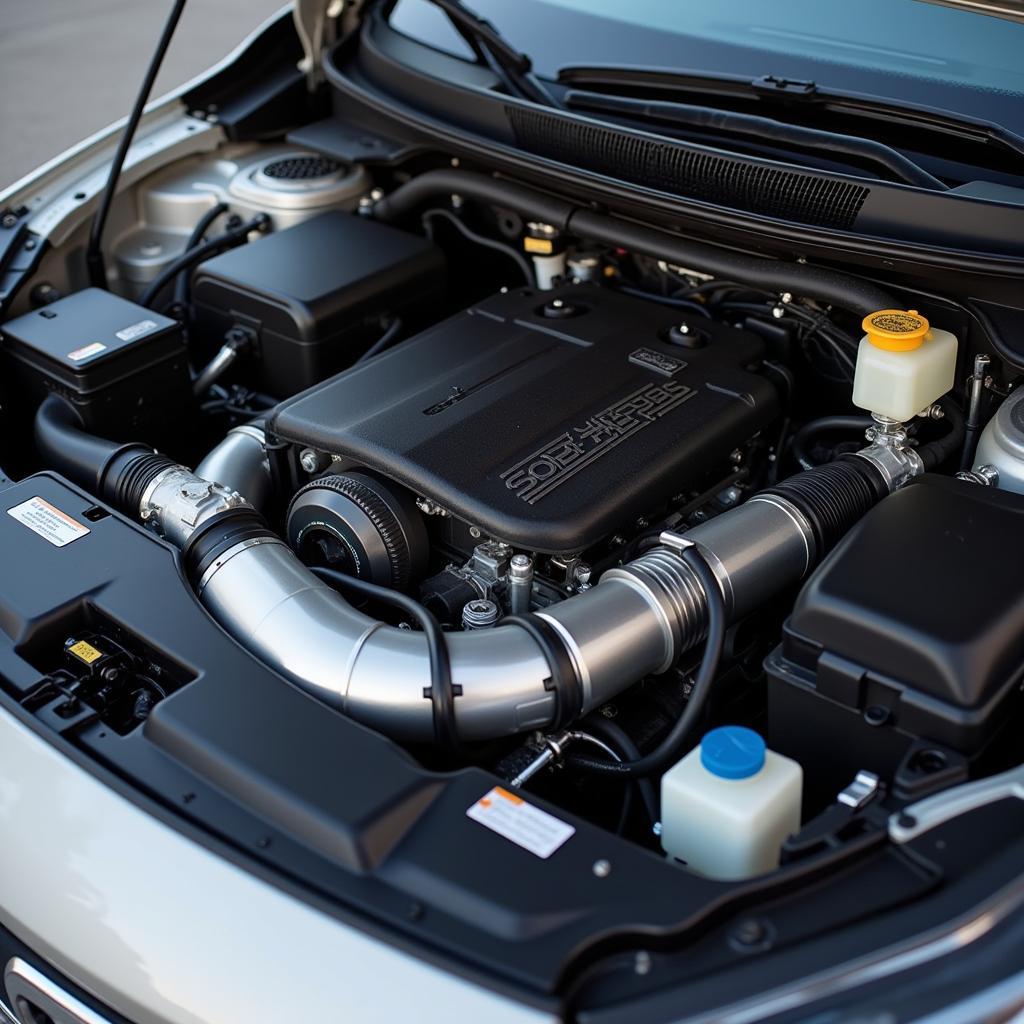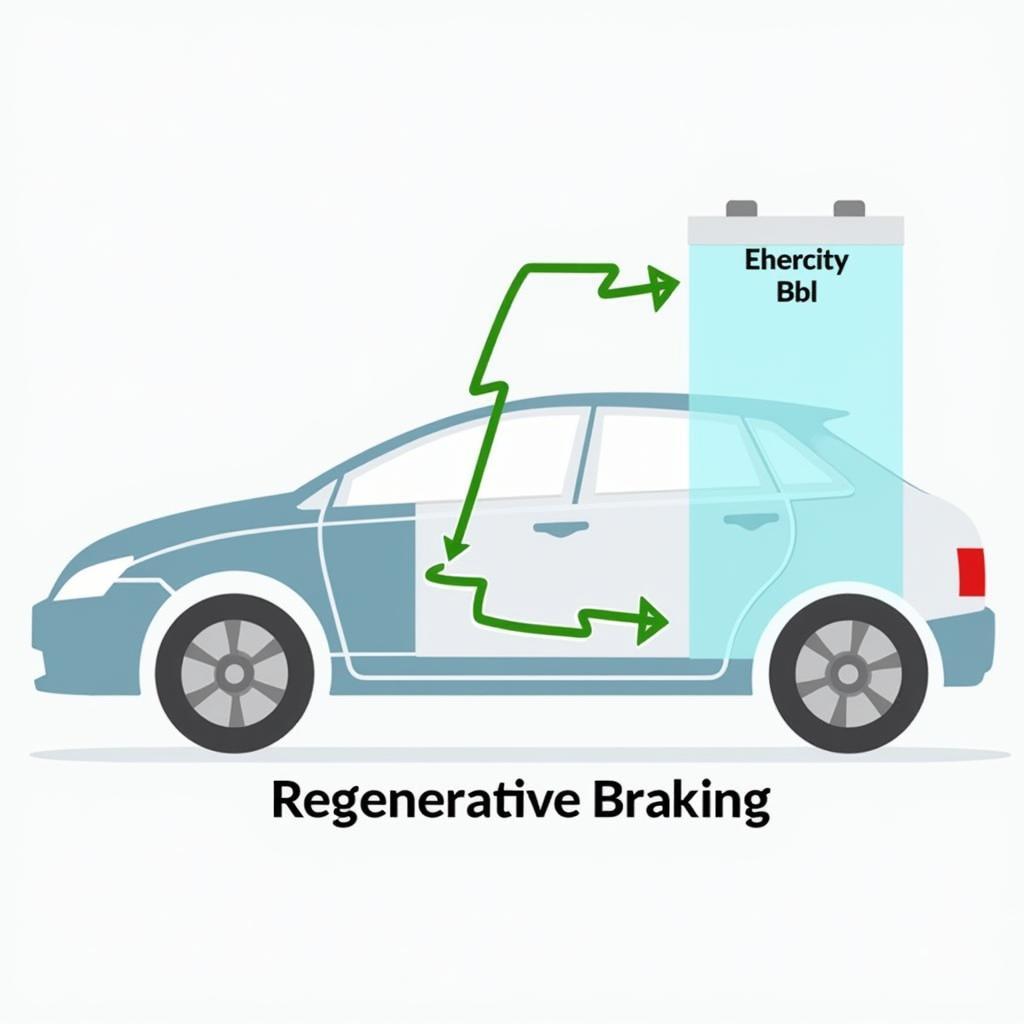Choosing between a hybrid and a traditional gas car is a big decision, and maintenance costs are a key factor to consider. While hybrids often boast impressive fuel efficiency, are their maintenance requirements more complex or costly compared to their gas-powered counterparts? Let’s break down the nuances of hybrid vs. gas car maintenance to help you make an informed choice.
Understanding the Core Differences: Hybrid vs. Gas Car Mechanics
Before diving into maintenance specifics, it’s essential to understand the fundamental distinction: hybrids have both a gasoline engine and an electric motor. This dual system introduces unique components to the maintenance equation.
 Hybrid Engine Bay
Hybrid Engine Bay
In contrast, gas cars rely solely on their internal combustion engine, a more familiar and established technology. This difference in powertrain complexity influences the maintenance needs of each vehicle type.
Routine Maintenance: Similarities and Variations
When it comes to routine upkeep, hybrids and gas cars share many similarities:
- Oil Changes: Both require regular oil changes, though the intervals might differ.
- Filter Replacements: Air filters, cabin filters, and fuel filters are essential for both types and require periodic replacement.
- Brake Inspections: Regular brake checks are crucial for safety and apply equally to hybrids and gas cars.
However, hybrids introduce a few unique elements:
- Regenerative Braking System: This system captures energy during braking to recharge the battery. While generally low-maintenance, periodic inspections are necessary.
- High-Voltage Battery: This battery powers the electric motor and has a long lifespan. However, its condition should be monitored, and replacement, though infrequent, can be a significant expense.
 Regenerative Braking System
Regenerative Braking System
“Many people are surprised to learn that hybrid vehicles still require traditional maintenance like oil changes,” says John Miller, senior automotive engineer at Autotippro. “However, the added electric components do introduce some unique maintenance considerations.”
Cost Considerations: Debunking the Myths
A common misconception is that hybrid maintenance is significantly more expensive. While the specialized components might seem intimidating, routine maintenance costs are often comparable or even lower for hybrids.
- Reduced Wear and Tear: The electric motor in a hybrid assists the gasoline engine, reducing wear and tear on the engine and brake system, potentially leading to lower long-term maintenance costs.
- Fuel Savings: Hybrids excel in fuel efficiency, translating to significant savings over the life of the vehicle, offsetting potential increases in maintenance expenses.
DIY vs. Professional: Weighing Your Options
Routine tasks like checking fluids and replacing filters can often be handled by DIY-inclined owners for both types of vehicles. However, hybrids involve high-voltage systems best left to trained professionals. Specialized equipment and expertise are essential for safely servicing these components.
Making the Informed Choice: Factors to Consider
Ultimately, the best choice between a hybrid and a gas car depends on individual needs and priorities.
If you prioritize:
- Fuel Efficiency: Hybrids are the clear winner.
- Eco-Friendliness: Hybrids significantly reduce emissions.
- Long-Term Cost Savings: The combination of fuel efficiency and potentially lower maintenance costs makes hybrids appealing.
However, if you value:
- Lower Initial Cost: Gas cars typically have a lower upfront price.
- DIY Maintenance: You enjoy handling most maintenance yourself.
- Wide Availability of Mechanics: Gas cars are serviced everywhere.
Consider your driving habits, budget, and comfort level with technology when making your decision. “Choosing the right vehicle is about finding the best fit for your lifestyle and priorities,” adds Miller. “Don’t let misconceptions about hybrid maintenance deter you from exploring their benefits.”
Conclusion:
Both hybrid and gas cars require regular maintenance, each with its nuances. While hybrids introduce specialized components, their overall maintenance costs might not be significantly higher, and they offer compelling advantages in fuel efficiency and environmental impact. By understanding the key differences and weighing your individual needs, you can make an informed decision that aligns with your priorities.
Need expert advice on car maintenance? Contact the team at AutoTipPro for personalized guidance and assistance.
Phone: +1 (641) 206-8880
Office: 500 N St Mary’s St, San Antonio, TX 78205, United States
FAQs:
1. Do hybrids require special brake pads?
Hybrids often use regenerative braking, which can extend brake pad life. However, using standard brake pads is usually fine.
2. How long do hybrid batteries last?
Hybrid batteries are designed for longevity, typically lasting 8-10 years or even longer.
3. Can I jump-start a hybrid car?
Yes, but it’s crucial to follow the manufacturer’s instructions carefully as the process differs from jump-starting a gas car.
4. Are there any government incentives for hybrid car maintenance?
Incentives vary by location. Check with your local government and tax authorities for available programs.
5. Where can I find reliable hybrid car mechanics?
Dealerships specializing in your hybrid’s make are a good starting point. You can also search for ASE-certified mechanics with hybrid experience.





Leave a Reply